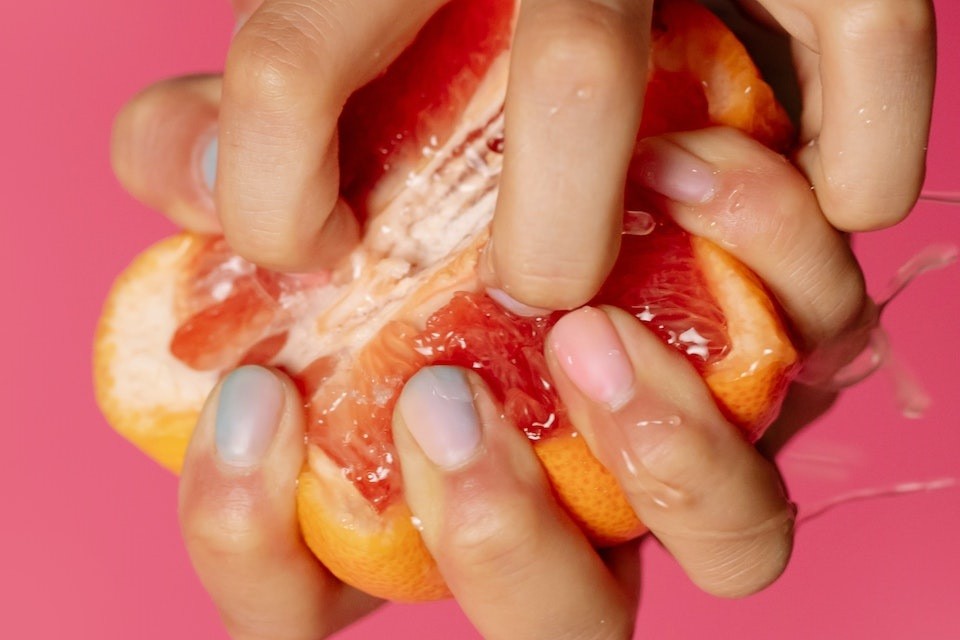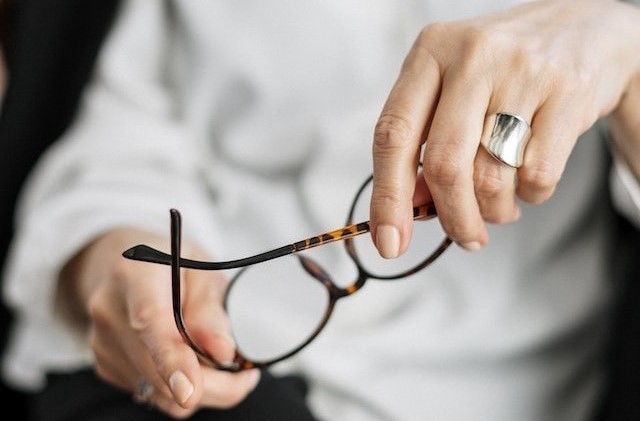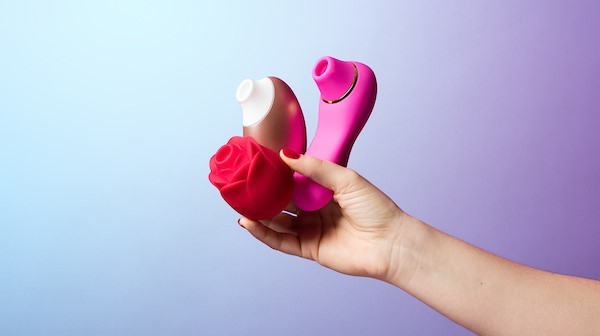If tingles in your tank are getting fewer and far between, there’s no need to panic. The female libido, or the desire to engage in any form of sexual activity, is a very finicky thing. In fact, recent research conducted by Headspace app and Peanut found a whopping 75% of women have experienced low sex drive.
So, it’s safe to say that many clitoris owners are being forced to play the same game of libido limbo as you are. For a multitude of reasons, the bonking bar you set yourself can suddenly fall lower and lower, leaving you scrambling to keep the good times going or give up altogether. The only positive in this situation is that your friends don’t loudly sing “how-low-can-you-go” beside you, thank goodness.
However, bending over backwards to try to save your sex life and keep your partner(s) happy will only leave you feeling lack-lust-re. This handy guide is here to put a stop to the games and help you get your sex drive back in tip top tapping shape.

On a biological level, the sex hormones oestrogen, testosterone and progesterone are the ones holding the reins on our sex drives. How frisky you’re feeling is controlled by natural fluctuations in these hormones throughout the menstrual cycle. To keep things brief, an increase in oestrogen and testosterone during ovulation gives your body a nudge nudge to get busy while you are most fertile. These two hormones then decrease after ovulation and progesterone comes flooding in, leading many women to experience a lowering in sex drive.
But that’s where the simplicity ends. Unfortunately, the libido is not only set by a bunch of hormones roaming around your body. To complicate things even further, sexual desire differs from person to person, so there’s no “normal” sex drive that we all naturally possess.
So, how do you know when your libido is low? It’s as simple as checking in with yourself to understand whether you're experiencing desire less often than you normally do or want to. Once you’ve figured this out, the next step is uncovering exactly what’s causing the decline in desire.
Unfortunately, there is no one-and-done answer that explains why you’re wanting to get it on less often. However, there are a few common culprits that could be entangled in your case of low libido. Let us introduce you to some of the main suspects.

Hormonal changes relating to menopause or pregnancy
Menopause and pregnancy are both two transformative experiences for your body, so it’s only expected that your hormones go on a bit of a rollercoaster ride. Fluctuations in your normal hormonal levels, as well as exhaustion, nausea, vaginal dryness and lack of sleep can lead to a lowering of sexual excitement during this time.
Mental health concerns
When your mental health is taking a turn for the worst, it can be very difficult to muster up any energy for bedroom antics. From anxiety triggering your fight-or-flight mode, to depression making it difficult to perform everyday tasks, your body has no chance to relax and get reared up. Negative self-esteem and body image are also known to impact lust levels, as a lack of love for your own body is sure to stop you from enjoying close intimacy with others.
Lack of sleep
Not getting enough shut-eye at night is often an unsuspecting enemy of your libido. In fact, recent research has proved that poor quality of sleep has a scarily strong correlation with low sexual desire and arousal in females. After all, if your body is not getting enough time to replenish itself, then it’s going to struggle to perform its everyday functions. Tiredness is not a turn-on, that’s for sure.
Lack of exercise
A regular exercise routine can lead to improved mental health, better lifestyle choices and less stress – all great ingredients for a good sex life. When you reverse that, you can now imagine what a lack of exercise does to the body. Working out can also boost testosterone in the body (yes, even for women) and we all know the agenda of that sex hormone.

Relationship issues
Whenever you’re annoyed at your partner, do you feel the desire to get up close and personal with them? It’s unlikely. Emotional intimacy is often a precursor to sexual intimacy, so problems within a relationship can often cause problems in your sex life as well. Whether you’ve just had a little spat or completely lost your connection with your partner, you can expect to see an impact on your sexual desire.
Lack of enjoyment
If you simply don’t enjoy it, then you’re not going to want it. Vaginal pain or past trauma can trigger a high level of stress during sexual experiences and shift your body into a state of unrest rather than relaxation. Naturally, your desire for sex will decrease as you try to avoid these negative experiences.
Medical side effects
A diminished sex drive or decrease in vaginal lubrication can be a common side effect of some prescribed medications. Antidepressants, contraceptives, blood pressure medications, antiepileptics and diabetes drugs are all known to lower libido in women.
Aside from side effects, severe medical conditions can also lead to a disconnection from the body and a loss of arousal. Seeing your doctor or medical professional is your best port of call if you believe this could be lowering your sex drive.
So, how do you bring back the arousing anticipation? There are several ways to get your mojo back, most of which focus on practising a healthy lifestyle and keeping up clear communication. While there is no magic cure for your desire dead-end, implementing the following tips into your life will give you the best chance of finding those frisky feelings again.

Eat a nutritious diet
There are two parts to this tasty tip: eating foods that make you feel good health-wise and eating food that makes you feel really good sex-wise.
Changing up your diet to make it rich in veggies and lean protein will boost your energy, improve your stamina and encourage healthy blood flow through the body and down there. Lucky for us, gastronomical researchers have also put their brilliant minds to work and identified specific snacks that can arouse sexual desire.
Labelled aphrodisiac foods, the following titbits contain the most amount of “feel food” compounds, which are known to enhance bodily sensations and get you in the mood: oysters, spicy chilli peppers, figs, strawberries, pomegranates, asparagus, artichokes, watermelon, honey, and of course, chocolate. Try putting a few of those on your plate to increase your impulses.
Last on the lustful dieting list is reducing your alcohol, drug and cigarette consumption. While they may temporarily turn you up to the max, high use of these bad boys will interfere with your body’s natural hormonal regulation and lower your libido in time.

Get enough exercise and sleep
If you want your body to treat you to teasing thrills, then you’ve got to treat it right in return. That means getting your 8 hours at night and increasing your heart rate for at least 30 minutes per day. Keeping up a good exercise and sleep schedule will not only reduce stress and anxiety (instant mood-killers), but also increase blood flow to your intimate areas and increase arousal. You’ll also start to experience a boost in energy and physical stamina, which can always come in handy during long pleasure sessions.

Go au naturel with herbal remedies
Whether or not you believe in organic magic, the option is always there. While studies haven’t found conclusive results that prove a positive link between herbs and sexual functioning, some people swear by natural remedies to improve their sex drives.
Gingko, ginseng, maca, tribulus terrestris and fenugreek are the most popular herbal supplements taken to boost the juice. Although the supplements are natural, caution should always be taken when trying any new medications without your doctor’s approval.

Communicate with your partner(s)
You know what they say - communication is lubrication. Literally. Being able to have an open and honest conversation with your partner(s) when your sex drive is low on gas is a critical step in boosting your sexual satisfaction. Sitting down and discussing your sexual desires, fantasies, turn-ons and turn-offs will build greater intimacy and give your partner a better understanding of your needs.
The more in sync you feel with each other, the more you’ll want to tease and please them during some alone time.

Seek help from a doctor or therapist
At times, the above changes in lifestyle and communication habits won’t be enough to fill the hole. In this case, it is best to seek advice from a trusted health professional to help identify the root causes of your lowered libido and how it can be improved.
If you’re unsure of where to go, talking to your doctor is a good first step – especially if you suspect your diminished sex drive could be a side effect of prescribed medications or a health condition. Alternatively, speaking to a therapist about your concerns is also a great option, helping you to identify and address any psychological factors that could be stopping you from enjoying a great sex life.
Yes, how could we forget! We’re all impatient to get a little action, especially after it’s been a while. If you’re looking for a quick, frisky fix and nothing serious is going down, the answer lies in increasing your excitement for the good deed.

Sex toys are a great way to add more variety and anticipation into the bedroom, both before and during the big act. Adding new types of stimulation into your play will help you pinpoint exactly what you like and increase these sensations in the future for enhanced enjoyment. Arousal aside, sex toys are also known to reduce stress and anxiety, as well as help you sleep better at night – which are all notable libido killers if left to run loose. If you’re interested in introducing some bedroom buddies into the mix, check out our guide on the 10 best sex toys for couples.
Orgasm boosters are also a great way to heighten your sensitivity to each taste and tease. Created to increase blood flow to intimate areas, orgasm boosters spark tingly sensations across your sweet spots and make you more aware of your body. Available in the form of orgasm balms, gels, lubes and supplements, you’re sure to find something that tickles your fancy and increases your excitement for partnered pay. Find out more in our guide to female orgasm boosters.
While these options can increase women’s libidos in the short term, it’s always best to get down to the root cause of your lacking lust to see long-term improvements. Try as you might, there are no shortcuts when it comes to rediscovering your sex drive.
Get the blood pumping and the mattress thumping
With the culprits in check and solutions at the ready, the game of libido limbo is almost over. Now it’s up to you to do the dirty work and get your sex drive back up to speed.
